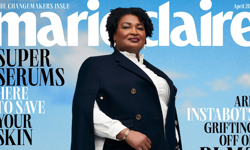
Ah magazine revenues. How do I diversify thee, let me count the ways.
With apologies to Elizabeth Barret Browning… let’s not.
The list of revenue diversification strategies being tried by modern magazine publishers is very long and occasionally very strange. Suffice to say, if there’s the slimmest chance something will add to the bottom line, someone, somewhere is trying it. Lean pork sausages from Men’s Health anyone?
From marketing services to masterclasses, archive subscriptions to activity holidays, publishers are happy to give it a go. And the once predictable world of licensing your publication’s reputation and audience reach hasn’t stayed immune to the frantic hunt for incremental revenue.
In the mythical good old days of magazine publishing, licensing was a steady revenue stream for many publishers, big and small. And way back when – maybe a decade ago – the model was simpler.
You took your content, bundled it with some brand guidelines, sold it to someone in a far-off land then collected a license feel or royalty on every edition they printed. Do that in a dozen territories and you had yourself a nice little earner.
And then came digital. More specifically, social media.
While the development of zero-cost global distribution didn’t kill the traditional magazine licensing model, it complicated it immeasurably. And border-less social sharing just upped the ante.
International by default
“The rise of digital media has led all businesses to be international whether they like it or not,” says James Hewes, now CEO of global media network FIPP and formerly head of international development for magazines at BBC Worldwide.
That default international presence complicated the licensing game for international partners who, generally, just want a straightforward brand deal. But, these days, the vast majority of successful magazines operate as brand portfolios, mixing print, web, events and the increasingly complicated social media presence.
Publishers can no longer think about just licensing one element of their property in isolation, says James. “You need to think about all aspects and that may conflict with your aspirations elsewhere. For example, how do you manage your social media presence? It’s Cosmo vs Cosmo South Africa on Facebook.”
And the potential for conflict isn’t limited to publisher and licensee. Multiple channels might also mean multiple license holders, forcing decisions around who has the rights to individual elements of the portfolio. A brand like National Geographic has to think beyond publishing rights on and offline to consider television channels, events and merchandise.
Also, in developing a broad digital presence, publishers inevitably attract international traffic. The temptation to serve that traffic better with targeted local content is huge, but moves in that direction leave publishers with a dilemma – do they partner, or do they own and operate?
From marketing services to masterclasses, archive subscriptions to activity holidays, publishers are happy to give it a go.
Partner vs Owner Operator
Calculations around risk and reward have always played a part in the licensing equation; taking on a local partner was a way to mitigate risk. But James believes that testing foreign markets is much less risky than it used to be.
He uses the example of Hearst’s launch of Cosmopolitan in Nigeria. “They entered Nigeria with Cosmo as an owned and operated business but with almost no risk because they could do it all from New York.”
Because so much of the magazine business is no longer physical, direct involvement from publishers is a realistic prospect in the future. “With a printed magazine, forget it, there's no way you could ever do that. As soon as you introduce the physical media, you have overhead. But if you're just selling ads on a website, all you've got is a person in a We Work.”
But James doesn’t see the choice between owner-operator or licensor as binary.
“The range of potential partnerships that exists now is so much bigger than it ever was before,” he explains. “At the top end, you can do it all yourself, but there's an infinite degree of partnerships toward the other end of the scale where you can get people to do specific bits – just sell the ads, just create the content.”
Publishers are starting to look at the bigger picture, which is the brand licensing space.
An interesting, useful revenue stream
Traditional content licensing may not be seen as as important as it once was, but there are still plenty of companies out there making a lot of money from licensing, syndicating their content and increasingly their magazine brand.
Nikki Simpson, director of the International Magazine Centre in Edinburgh, says: “Publishers are selling brand as much as content. And buyers are as likely to be people outside of publishing, from hotel chains to device manufacturers, as much as magazine publishers.”
“Is it growing as quickly as it once was? No,” James Hewes admits. “Is it still an interesting, useful revenue stream for most businesses? Yes.”
With major publishers embedded in most of the leading international licensing markets, new ways to leverage value from their existing assets are very welcome. “Publishers are starting to look at the bigger picture, which is the brand licensing space,” says James.
As reader relationships deepen around aggressive paid content efforts, publishers see real opportunity in licensing their brand equity for consumer-facing projects with partners from outside the traditional media ecosystem.
The poster child for bigger, bolder, broader brand licensing efforts has to be Meredith Corp, the world’s second largest global licensor with $25.1 billion in branded sales recorded for 2018.
Its biggest magazine, Better Homes & Gardens (BHG) has a print circulation of about 7.5 million, international editions from Australia to Turkey and has spawned a host of books, bookazines, online video programming and TV shows.
But it also has a brand licensing operation that started over a quarter of a century ago when Walmart began selling BHG-branded homeware and garden products. Today, Walmart sells 3,000 BHG items and frozen food, fresh flowers and a real-estate operation have been added through other licensing partnerships.
“You could argue the licensing portfolio is more valuable than the magazine,” says James.
That sentiment seems to have reached its zenith in the latest licensing deal from Meredith, recently selling the rights to the iconic Sports Illustrated brand to a management company that also looks after rights to elements of the Muhammad Ali and Elvis Presley names.
While Meredith continues to produce content for the flagship publication, the Authentic Brands Group will be selling the Sports Illustrated brand rights to everyone from medical clinics and sports-skills training classes to gambling businesses.
While many larger organisations employ dedicated licensing staff, Nikki Simpson is concerned that smaller publishers no longer know how to exploit international licensing opportunities: “Publishers aren't looking at it because they don't know how to do it. They see the stuff happening on their own doorstep as easier, but there's so much potential.”
“Publishers ask, ‘Why license a magazine overseas when you can distribute it yourself?’, but having a local partner is still a huge benefit.”
“You don't know the distribution network or local culture. There are language barriers. And a local license holder can protect against people stealing content in foreign territories.”
Publishers need to think partnerships through, do their due diligence and work hard to protect their brand values.
Risky business
James Hewes says the holy grail is to have a balanced, diversified revenue model. “We keep banging on about the need to diversify your revenue streams, to de-risk your business.”
But is there a risk of overextending the brand through licensing, devaluing it by putting it on products or in places that don't properly reflect your brand values? Anyone who has ever encountered a Playboy pencil case will understand the question.
“Playboy are now a licensing company that happens to do some magazines on the side,” James says. But he thinks, learning the lessons of groups like Playboy, magazine publishers will be more careful with their brands in future.
One of the most intentional, brand-friendly licensing efforts in the UK recently is a deal between Hearst UK and Coast & Country Hotels to rebrand two hotels. Staff from Hearst’s Country Living magazine will “re-work the aesthetic” of a number of rooms in the Lansdown Grove Hotel, Bath and the St George in Harrogate.
Announcing the partnership, and saying it is the first time a publisher has put its stamp on a hotel, Hearst UK CEO James Wildman said: “Together, we plan to create something new, that will surprise and delight Country Living’s loyal fans as well as introducing many more to the brand.”
Equally ‘on-brand’ is luxury lifestyle title Monocle’s plans for branded apartment buildings. The Guardian reported in 2017 that Tyler Brûlé, Monocle’s founder and chairman, was working on plans to launch a high-end apartment complex in Bangkok in partnership with a luxury Thai property developer.
Brûlé explained that, “after devoting countless issues of Monocle to how to create the perfect apartment”, the pressure was on to convert sleek magazine spreads into a reality.
From Men’s Health partnership with leading food manufacturer ABP to offer consumers / readers healthier choices (remember those lean pork sausages) to National Geographic teaming up with North Face to make eco-friendly clothing made from recycled plastic, brand values are driving the licensing agenda.
And James says this is the only way people will succeed in this more complex, modern world of magazine licensing. Publishers need to think partnerships through, do their due diligence and work hard to protect their brand values.
“They need to be more intentional, more thought through,” he explains. “If you just 'brand slap', you're devaluing what you have spent all this time and effort building.”
This article was first published in InPublishing magazine. If you would like to be added to the free mailing list, please register here.










